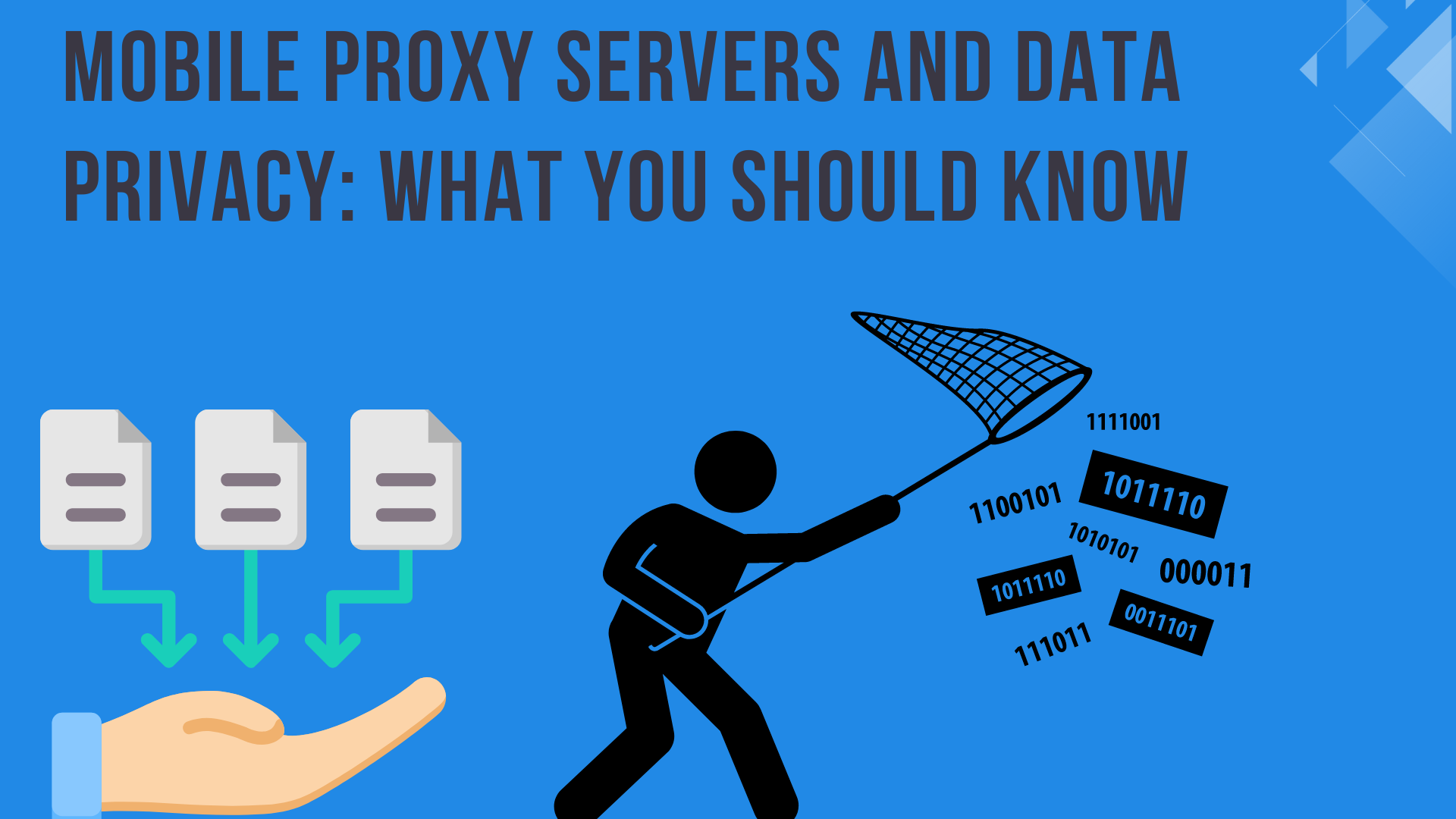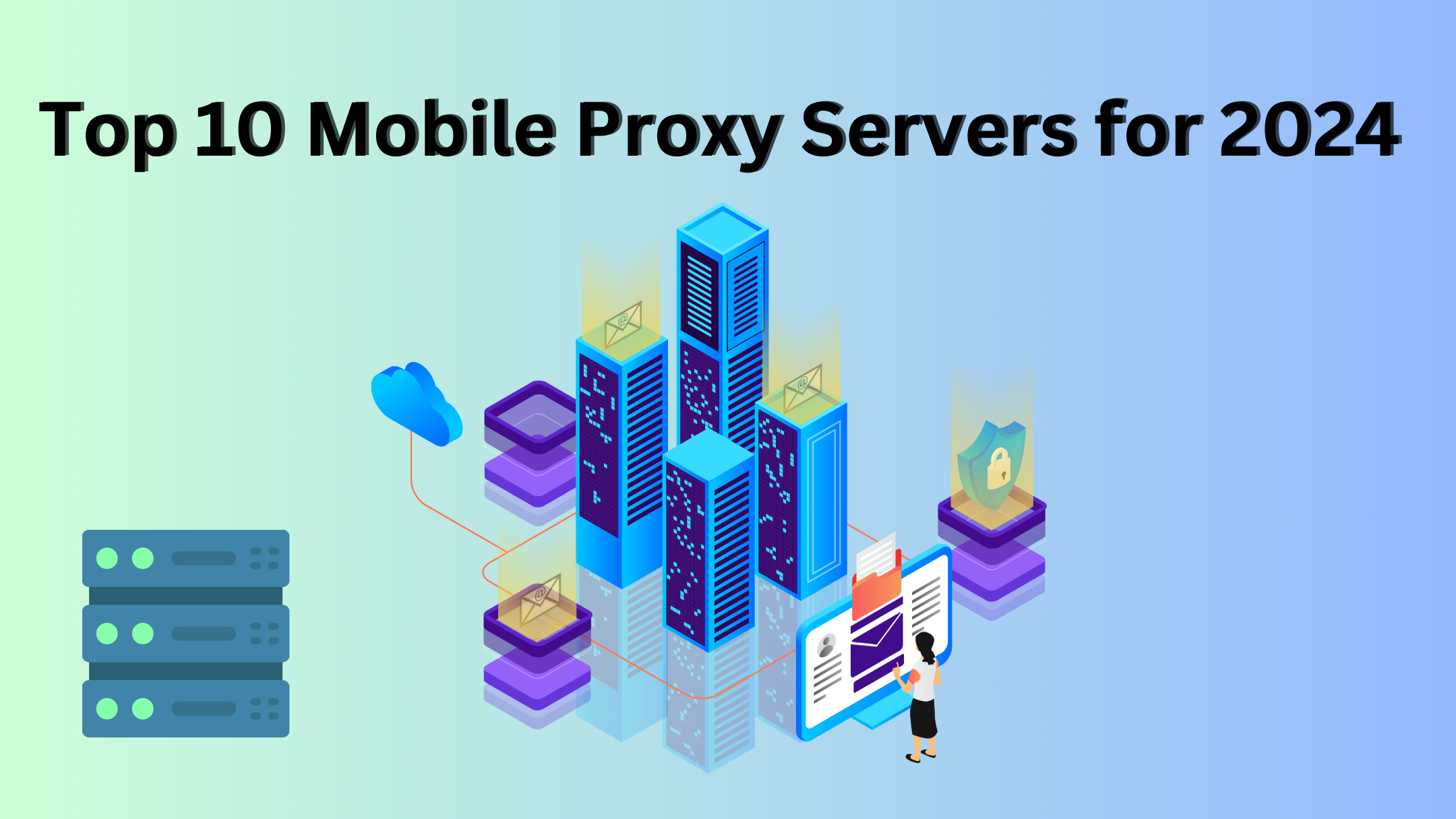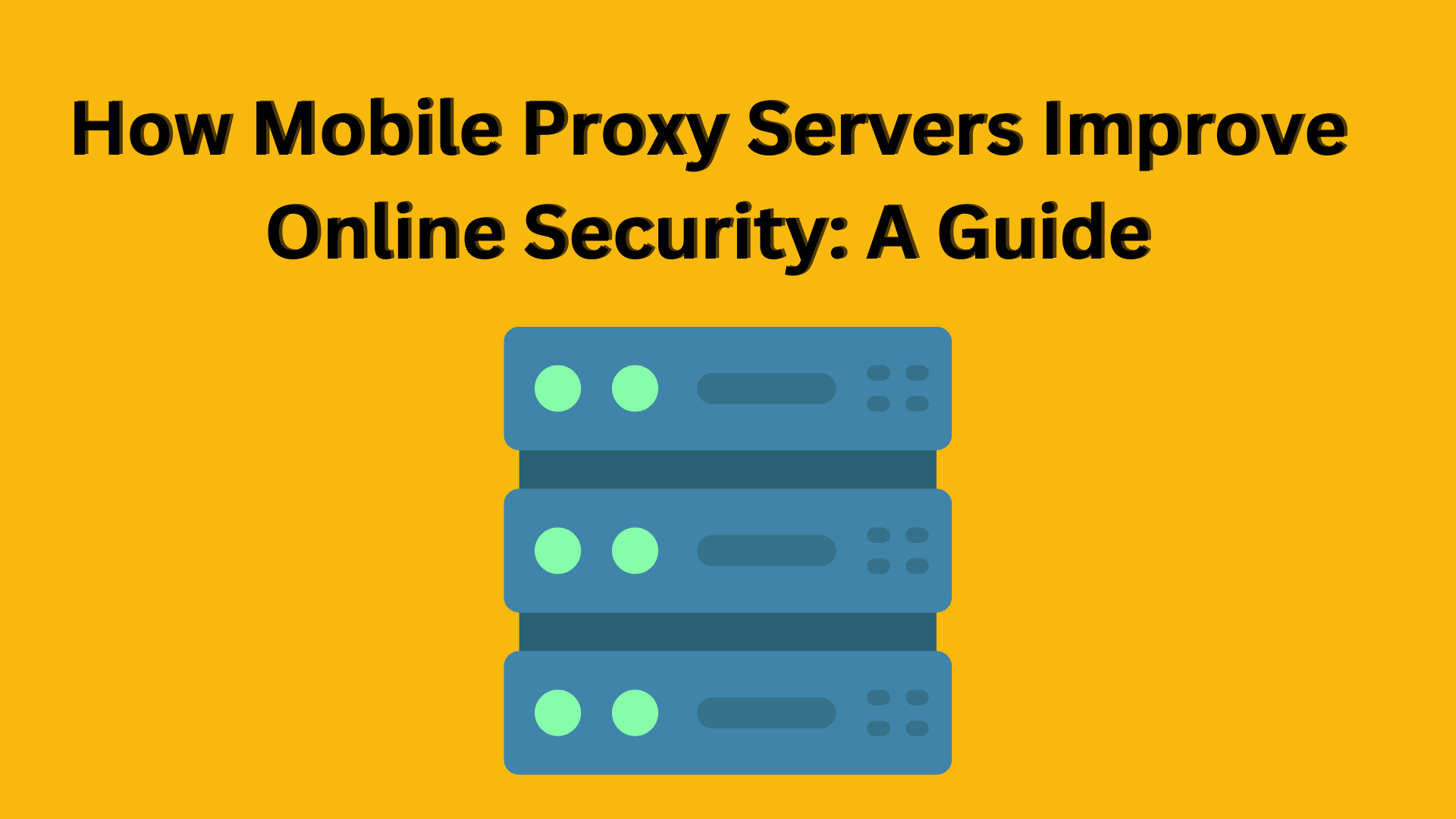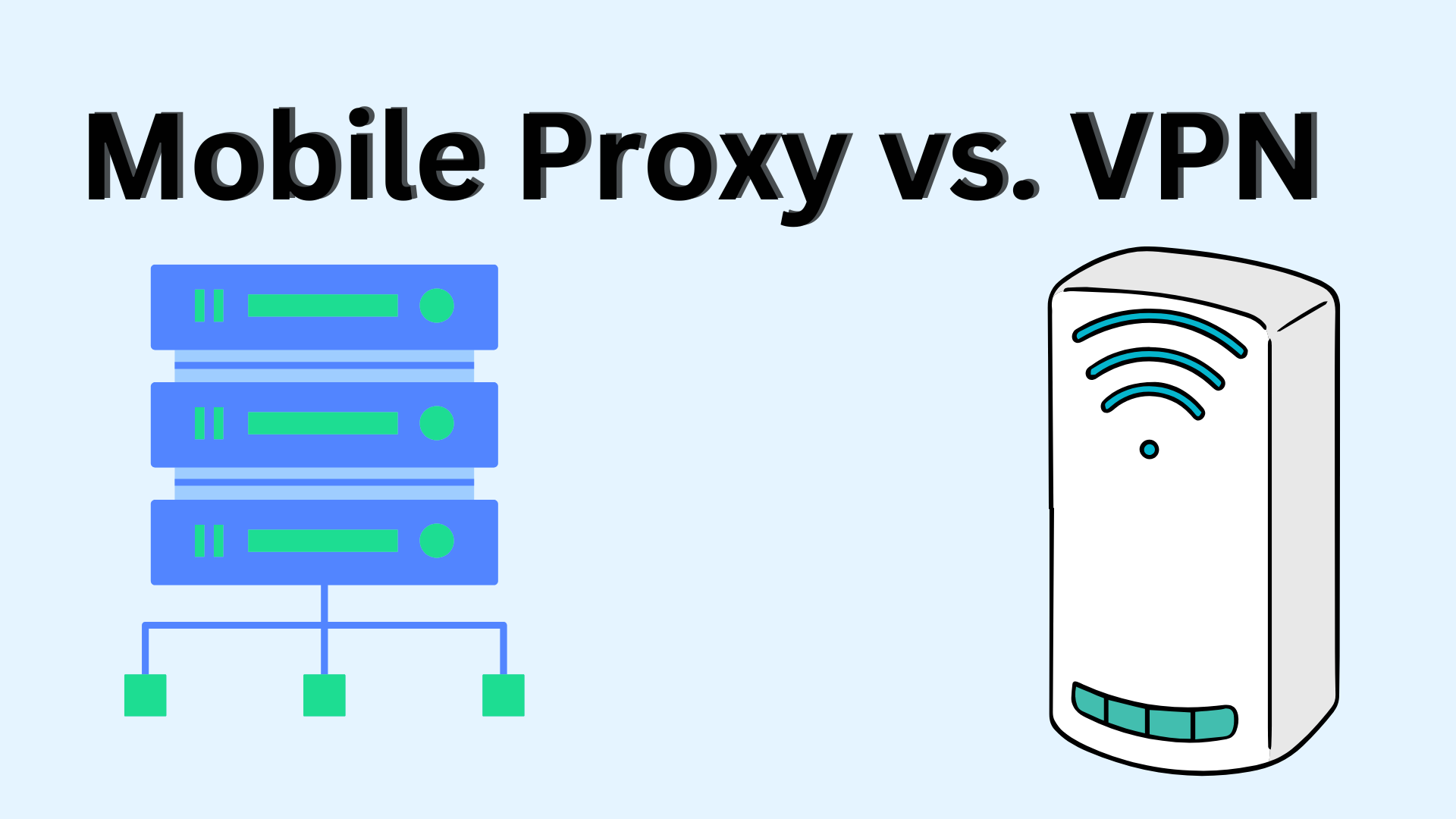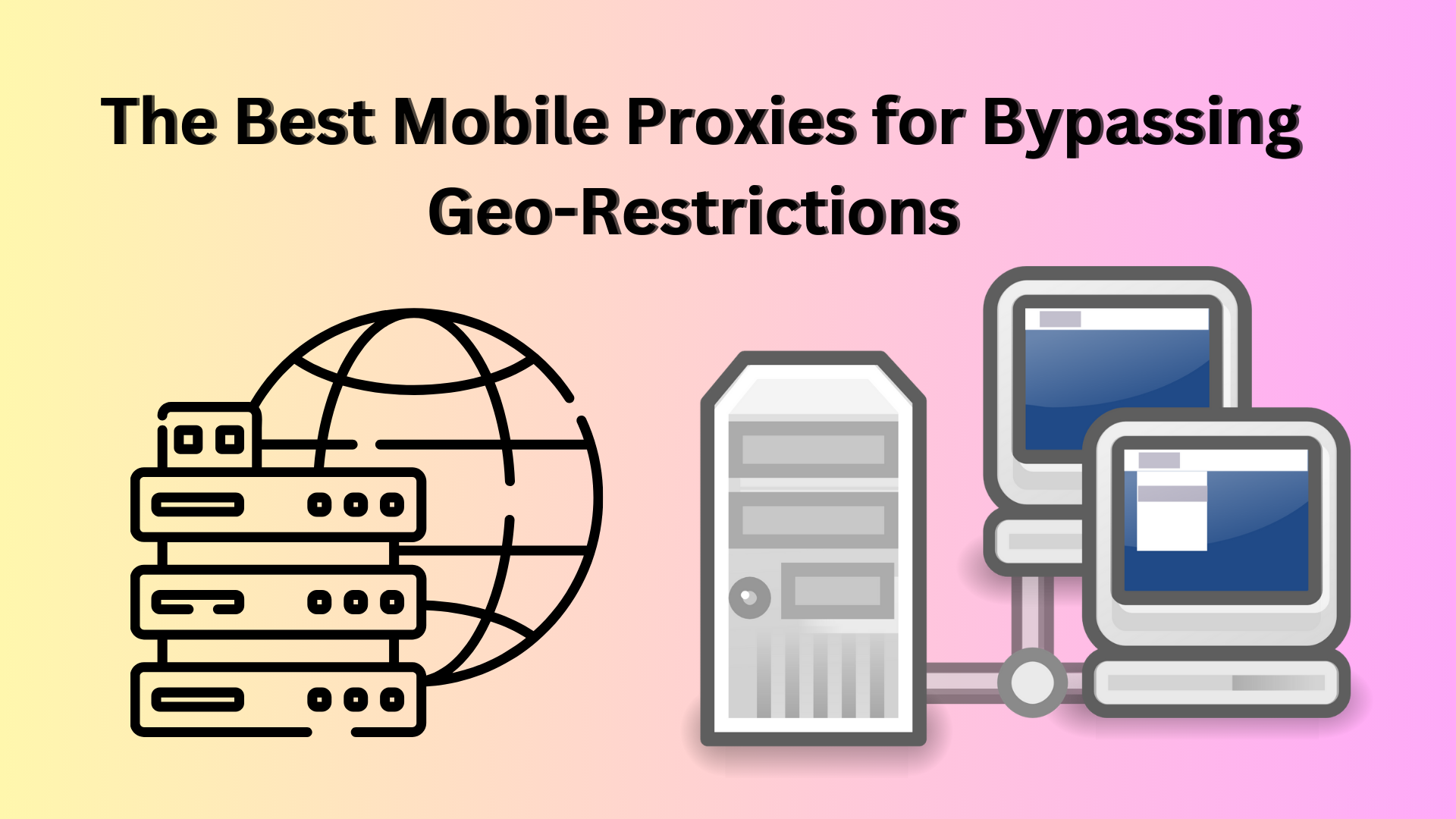In today’s digital landscape, where personal data is increasingly at risk, understanding how to protect your information is crucial. With cyber threats evolving and privacy concerns mounting, tools like mobile proxy servers are becoming essential for safeguarding your online presence. In this article, we’ll explore what mobile proxy servers are, how they function, and why they are a key component in maintaining data privacy.
What is a Mobile Proxy Server?
A mobile proxy server is a type of proxy server that routes your internet traffic through a mobile network, rather than through a traditional data center. This means that your online requests and responses are passed through mobile devices, which provide IP addresses associated with mobile carriers. This differs from other proxies that use static IP addresses from data centers or residential addresses.
Definition and Basic Functionality
In essence, a mobile proxy server acts as an intermediary between your device and the internet. When you make a request to access a website, the request is first sent to the proxy server, which then forwards it to the target site. The response from the website is sent back to the proxy server and then to your device. This process hides your real IP address and replaces it with one from a mobile network.
How Mobile Proxy Servers Differ from Other Proxies
Mobile proxy servers stand out from traditional proxies because they use IP addresses from mobile carriers rather than data centers or residential areas. This makes mobile proxies more difficult to detect and block, as they mimic real user behavior and appear more legitimate to websites and online services.
How Do Mobile Proxy Servers Work?
Mobile proxy servers operate by routing your internet traffic through a network of mobile devices. This setup provides several layers of anonymity and privacy.
The Technical Breakdown
When you connect to a mobile proxy server, your internet traffic is redirected through a mobile device that is part of the proxy network. The proxy server assigns a mobile IP address to your connection, which masks your original IP address. This makes it appear as though your internet activities are coming from a mobile network rather than your actual location.
IP Rotation and Anonymity
One of the key features of mobile proxy servers is IP rotation. This means that the IP address assigned to your connection changes periodically, making it harder for websites and online services to track your activities or identify your device. IP rotation enhances privacy by preventing consistent identification based on a single IP address.
Use Cases of Mobile Proxy Servers
Mobile proxy servers are used in various scenarios, including:
- Accessing Geo-Restricted Content: By using an IP address from a different region, you can bypass geographical restrictions and access content that is otherwise unavailable in your location.
- Managing Multiple Accounts: For businesses or individuals managing several social media accounts, mobile proxies help avoid detection and bans that may occur from using multiple accounts from the same IP address.
- Web Scraping: When gathering data from websites, mobile proxies prevent IP blocking and ensure continuous access to the data.
Advantages of Using Mobile Proxy Servers
Mobile proxy servers offer several benefits that enhance online privacy and security.
Enhanced Data Privacy
By routing your internet traffic through mobile devices, mobile proxy servers obscure your original IP address, making it more challenging for third parties to track your online activities. This added layer of privacy is crucial in protecting sensitive information from unauthorized access.
Improved Security Measures
Mobile proxy servers contribute to improved security by masking your IP address and encrypting your traffic. This reduces the risk of cyberattacks and protects your data from being intercepted by malicious actors.
Access to Geo-Restricted Content
One of the standout features of mobile proxy servers is their ability to bypass geo-restrictions. By using mobile IP addresses from various regions, you can access content that is otherwise blocked based on your geographical location.
Increased Anonymity Online
Mobile proxy servers offer increased anonymity by rotating IP addresses and using mobile network IPs. This makes it difficult for websites and online services to track your activities or identify your real IP address.
Disadvantages of Using Mobile Proxy Servers
While mobile proxy servers offer numerous benefits, they also come with some drawbacks.
Potential for Misuse
The anonymity provided by mobile proxy servers can be misused for illegal activities, such as bypassing restrictions or engaging in fraudulent behavior. This potential for misuse has led to increased regulation and scrutiny of proxy services.
Legal and Ethical Concerns
The use of mobile proxy servers can raise legal and ethical issues, particularly if they are used to circumvent restrictions or access content in unauthorized ways. It’s important to be aware of local laws and regulations and to use proxy servers responsibly.
Possible Impact on Connection Speed
Routing traffic through a mobile proxy server may result in slower connection speeds, especially if the proxy server is located far from your device or if there are many users sharing the same server. This can affect your browsing experience and overall internet performance.
The Role of Mobile Proxy Servers in Data Privacy
Mobile proxy servers play a vital role in enhancing data privacy by providing a higher level of anonymity and protecting personal information.
Protecting Personal Information
Mobile proxy servers help safeguard personal information by masking your IP address and encrypting your traffic. This prevents your data from being exposed to unauthorized parties and reduces the risk of identity theft.
Shielding Online Activities from Tracking
By masking your IP address and rotating IPs, mobile proxy servers make it difficult for websites, advertisers, and other third parties to track your online activities. This is particularly valuable for users who want to maintain their privacy and avoid targeted advertising.
Reducing the Risk of Cyberattacks
The use of mobile proxy servers adds an extra layer of security by hiding your IP address and making it harder for cybercriminals to target your device. This helps protect your personal information and reduces the risk of cyberattacks.
Mobile Proxy Servers vs. VPNs: What’s the Difference?
While both mobile proxy servers and VPNs offer privacy and security benefits, they function differently and are suited to different needs.
Understanding the Key Differences
- Mobile Proxy Servers: These route traffic through mobile devices and provide mobile IP addresses. They are particularly effective for bypassing geo-restrictions and managing multiple accounts.
- VPNs: Virtual Private Networks create an encrypted tunnel between your device and the internet, masking your IP address and securing your data. VPNs are ideal for securing your internet connection and protecting sensitive information.
When to Use a Proxy vs. a VPN
If your primary concern is accessing geo-restricted content or managing multiple online accounts, a mobile proxy server may be the better choice. For overall internet security and encryption, a VPN would be more appropriate.
Ethical Considerations of Using Mobile Proxy Servers
Using mobile proxy servers comes with ethical and legal responsibilities.
Legal Implications
Using proxies to bypass restrictions or engage in illegal activities can have legal consequences. It’s crucial to understand the laws governing proxy use in your region and ensure that you use these tools within legal boundaries.
Balancing Privacy with Ethical Use
While mobile proxy servers offer enhanced privacy, they should be used responsibly. Avoid using proxies for activities that could harm others or violate legal or ethical standards.
Common Misconceptions about Mobile Proxy Servers
Several misconceptions about mobile proxy servers can lead to misunderstandings about their effectiveness and limitations.
Debunking Myths about Privacy and Security
- Myth: Mobile proxy servers provide complete anonymity.
Fact: While they enhance privacy, they do not guarantee complete anonymity. Combining proxies with other security measures is essential for optimal protection. - Myth: Mobile proxies are only for illegal activities.
Fact: Mobile proxy servers have legitimate uses, such as accessing geo-restricted content and protecting personal privacy.
The Truth about Data Protection
Mobile proxy servers can significantly improve privacy and security, but they should be part of a comprehensive approach to online protection. Employing additional security measures, such as encryption and strong passwords, is crucial for safeguarding your data.
How to Choose the Right Mobile Proxy Server?
Selecting the right mobile proxy server involves evaluating several factors to ensure you get the best service for your needs.
Factors to Consider
- IP Quality: Look for services that offer high-quality, diverse IP addresses from reliable mobile networks.
- Performance: Choose a service with good performance metrics, including connection speed and reliability.
- Customer Support: Opt for providers with responsive customer support to assist with any issues.
Recommendations for Reliable Services
Some reputable mobile proxy services include:
- Luminati: Known for its extensive IP range and high performance.
- ProxyMesh: Offers a reliable and easy-to-use service with good customer support.
- Smartproxy: Provides a variety of mobile proxies with excellent speed and performance.
Setting Up a Mobile Proxy Server
Setting up a mobile proxy server involves configuring your device or application to use the proxy service.
Step-by-Step Guide
- Select a Proxy Service: Choose a reputable mobile proxy provider based on your needs.
- Configure Your Device: Follow the provider’s setup instructions to configure your device or application to use the mobile proxy.
- Verify and Test: Check your connection and verify that the proxy is working correctly by testing your IP address and internet speed.
Best Practices for Optimal Performance
To ensure the best performance from your mobile proxy server:
- Regularly Update Settings: Keep your proxy settings updated to maintain compatibility and performance.
- Monitor Performance: Track the performance of your proxy server to identify and resolve any issues quickly.
Mobile Proxy Servers in Business
Mobile proxy servers have valuable applications in various business contexts, from marketing to secure communications.
Applications in Marketing and Research
Businesses use mobile proxy servers to gather market intelligence, monitor competitors, and test digital marketing strategies. They help obtain accurate data from different regions and avoid detection.
Ensuring Secure Communications
Mobile proxy servers can be used to secure business communications and protect sensitive information from being intercepted. This is particularly important for maintaining confidentiality and data integrity.
The Future of Mobile Proxy Servers and Data Privacy
As technology evolves, so will the role of mobile proxy servers in data privacy. Future advancements may bring new features and capabilities that further enhance privacy and security.
Emerging Trends and Technologies
Upcoming trends in mobile proxy technology may include improved encryption methods, more sophisticated IP rotation techniques, and enhanced privacy features. Staying informed about these developments can help you make the best use of proxy services.
Predictions for the Future
The demand for mobile proxy servers is expected to rise as privacy concerns grow. Innovations in proxy technology will likely continue to improve privacy protection and address emerging threats.
Conclusion
Mobile proxy servers are a powerful tool for enhancing data privacy and security. By providing a higher level of anonymity and enabling access to geo-restricted content, they play a crucial role in protecting your online activities. However, it’s essential to use these services responsibly and be aware of their limitations and potential legal implications.
As technology continues to advance, mobile proxy servers will remain a key component in safeguarding online privacy. Understanding their functions, benefits, and potential drawbacks will help you make informed decisions about how to best protect your data and online presence.
FAQs
What are mobile proxy servers, and how do they work?
Mobile proxy servers route your internet traffic through mobile devices, providing mobile IP addresses that mask your original IP and enhance privacy. They rotate IPs to increase anonymity and prevent tracking.
Are mobile proxy servers legal to use?
Mobile proxy servers are legal in many areas, but using them to bypass restrictions or engage in illegal activities can have legal consequences. Always ensure compliance with local laws and regulations.
How do mobile proxy servers differ from traditional proxies?
Mobile proxy servers use IP addresses from mobile networks, while traditional proxies use data center or residential IPs. Mobile proxies offer higher anonymity and are better for bypassing geo-restrictions.
Can mobile proxy servers improve my internet speed?
Mobile proxy servers may sometimes slow down your connection due to the routing process and server load. The impact on speed varies based on the quality of the proxy service and server location.
Are mobile proxy servers safe for personal use?
Mobile proxy servers enhance privacy and security, but they should be used alongside other security measures, such as encryption and strong passwords. Choose a reputable service and follow best practices for optimal safety

